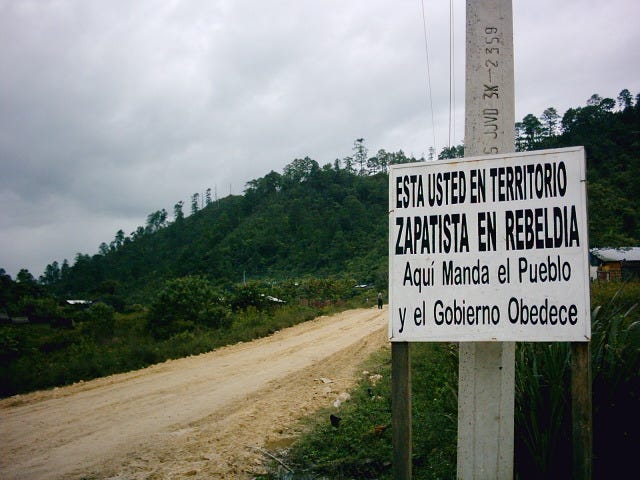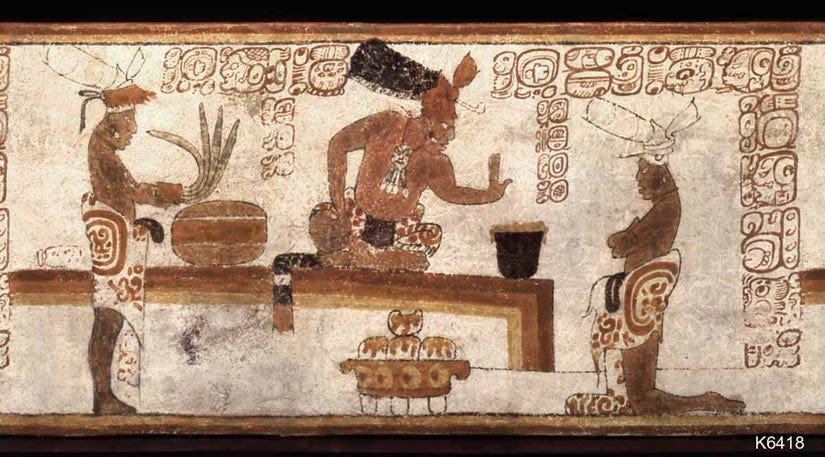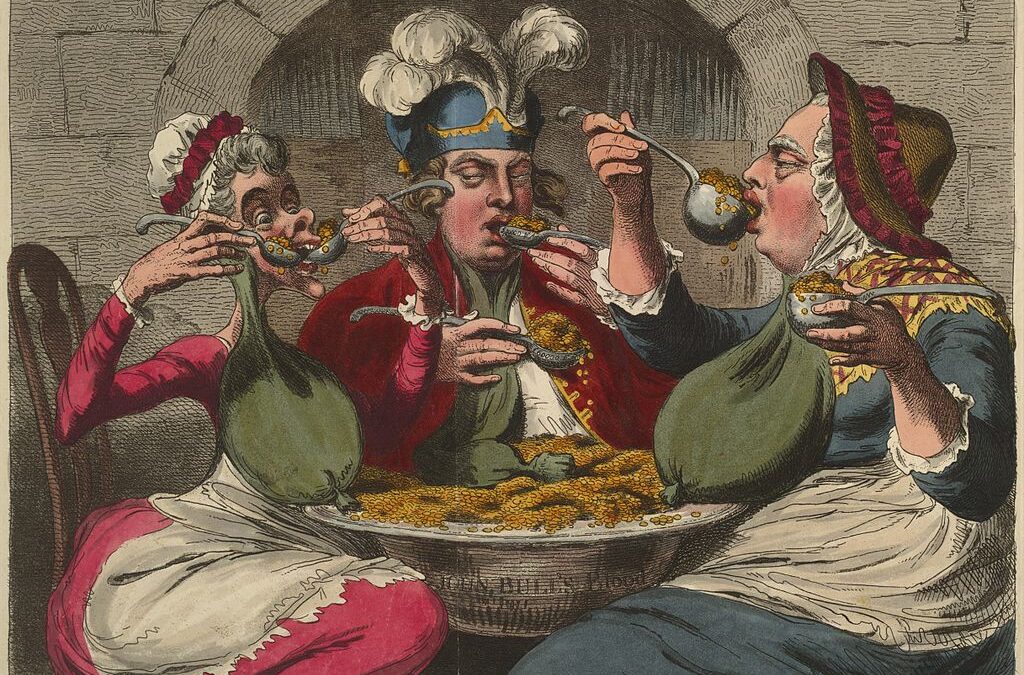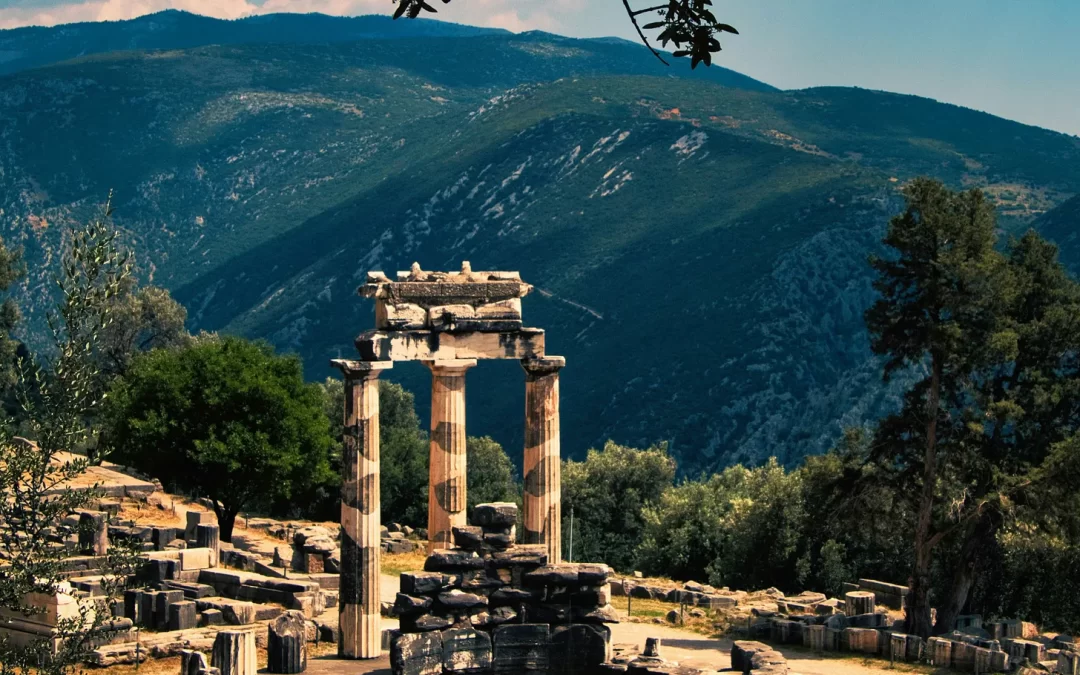
The Canyon of el Sumidero, Chiapas, Mexico
Today we tell another sad tale of famous foods and vegetables left to compost. Juana was a Soladera Tamal of the Mexican Revolution, 1910 – 1920, and her Herculean strength and invincibility so frightened her enemies that they erased all memory of her – even changing her name to Juana Gallo, in the famous song of that name:
Likewise, few know La Cucaracha was originally El Tamal Chili, or Soy Soldado Revolucionario was a corrido by the famous bullfighter Jorge Jalapeño, Somos Tamales de Carne y Maíz.
But you can still feel her presence upon the cliffs of the Cañón del Sumidero, above the calm and winding El Sumidero (see picture above). It was here Juana Teresa the Tamale, surrounded by her trio of Adelitas, Maria the Morita, Antonia the Ancho, and Paloma Pasilla, carved the defining words of the Mexican Revolution:
Traditions and rituals of long-held prejudices,
Of Tyrants and of the Poor
Guide their hands
To the most violent of injustices.
With these opening words, Juana awakened the Tabasco people. Never again would Tabasco be thought of dull, monotonous, dry and devoid of flavour. A born leader, she was able to meld the Soladera, the women soldiers, vegetables, roots and grains, who cooked, cared, and fought for freedom in Mexico. And despite the cost of those killed and eaten, what improvement in tastes she brought!
Juana was the woman men dream of. Medium height, slim, long hair, longer legs, and a round face with round, round eyes. And when she smiled – oh, those smiles! Those smiles transformed her face with matching round, round, and ever-so-soft cheeks. Then she would laugh, and men would follow! She grew up in the age of Pancho Villa and Emiliano Zapata. The dream of a better world, far from the oppression of the Porfiriato, had been born – and Juana was the birth and hope of many a song (and recipe).
She fought for the people, dispossessed of their land by the corrupt and avaricious landowners. In her fiery rage she burned the haciendas of those who had robbed and flogged the peasant farmers of the Chiapas Highlands. She chased the thieves to the protection of the army in the Zona Rosa of Mexico City.

Even today in Chiapas, Zapatistas say the people rule, and the government obeys
Sadly, just as Zapata himself was betrayed and ambushed, dying in the dust with a hundred bullets, Juana was caught, steamed and eaten, along with her chili comrades. Tears of heat were her only revenge.
But why do you hear so little of tamales today? Tamales taste so good, are so simple, whether they are wrapped in banana leaves or corn husks – or served naked. Juana’s tamales, prepared with help of her trio of chili comrades, Srtas. Morita, Ancho, and Pasilla, are prepared the way it has been done for thousands of years by her forbears, the Mesoamericans, long before the arrival of the Conquistadors. Cornmeal steeped in lime water, then steamed for an hour. Their flavour improves with slow and gentle steaming.
Perhaps that is the reason. Our age no longer respects the old ways, the old traditions. Patience is no longer a virtue. Fast food is the cry, the food of the ‘Me generation.’ Who wants to wait? The advertising of the world provides a surfeit of constantly changing imperatives. So the old flavours and the old ways are forgotten. Somehow it is not surprising that in the Nahuatl language, ‘tamal’ sounds like ‘your mother’s truth’; an appropriate name for a food vested in an ancient society, where meaning was found around the fire, in the mother’s cooking.
Try them, and think of the past.

Preparation of amaranth tamales for the Mayan god Xiuhtecuhtli.
Contributed By Nigel Scotchmer









